
Illustrations by London Artist Doug Gordon

1/12
Optima Site Solutions was founded on 17 March by Joel Emerson, Peter Marks and Antony Weir. The guys already had their drive, ambition and work ethic but couldn’t have known, at that time, where their new company would lead.
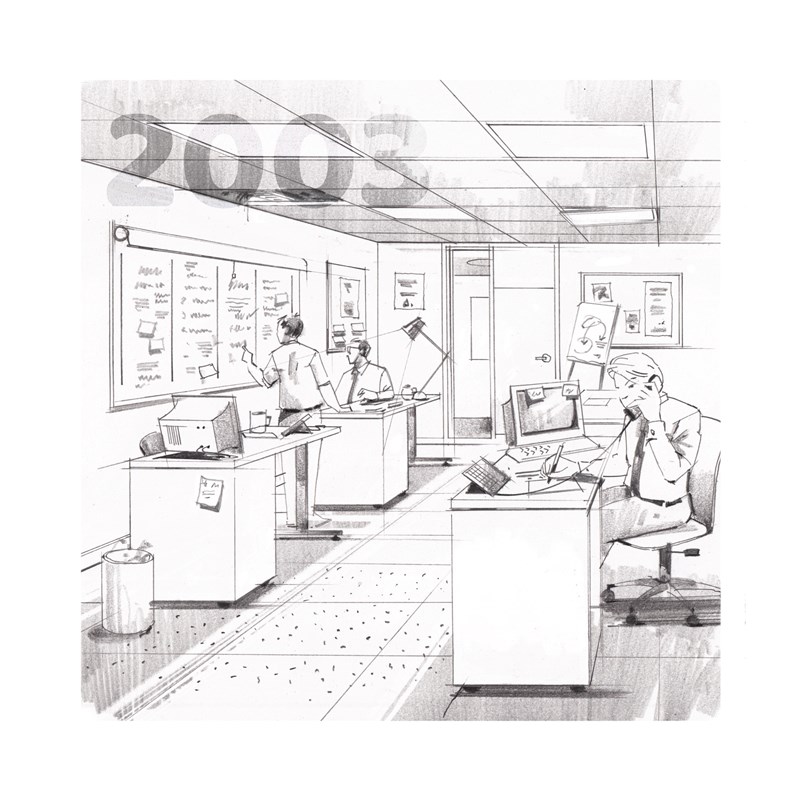
2/12
Optima Site Solutions started out in a small office at Kingsgate Business Park, Kingston-upon-Thames. The founders had to hustle hard to get established in the construction recruitment industry.
Hand-written flipchart pages adorned the walls and had to be covered and hidden when clients and potential competitors came in for meetings.
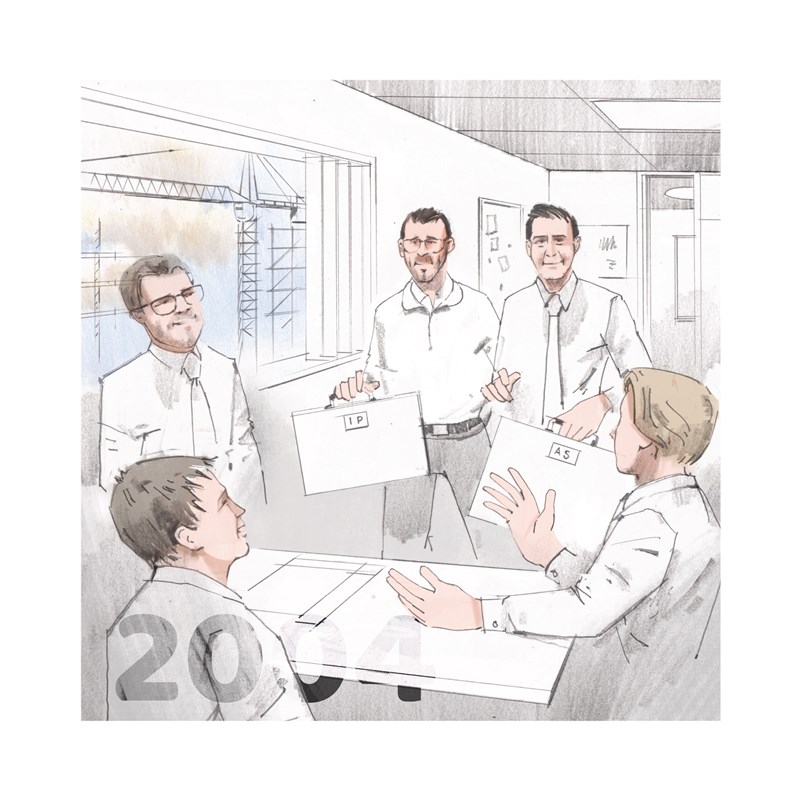
3/12
Optima takes on its first employees in Ian Palmer and Andrew ‘Slatts’ Slattery in 2003 and 2004. Both of whom are still with the company to this day.
Ian has worked his way up to Financial Director and Slatts will always be one of the best recruitment consultants that Optima has ever seen.
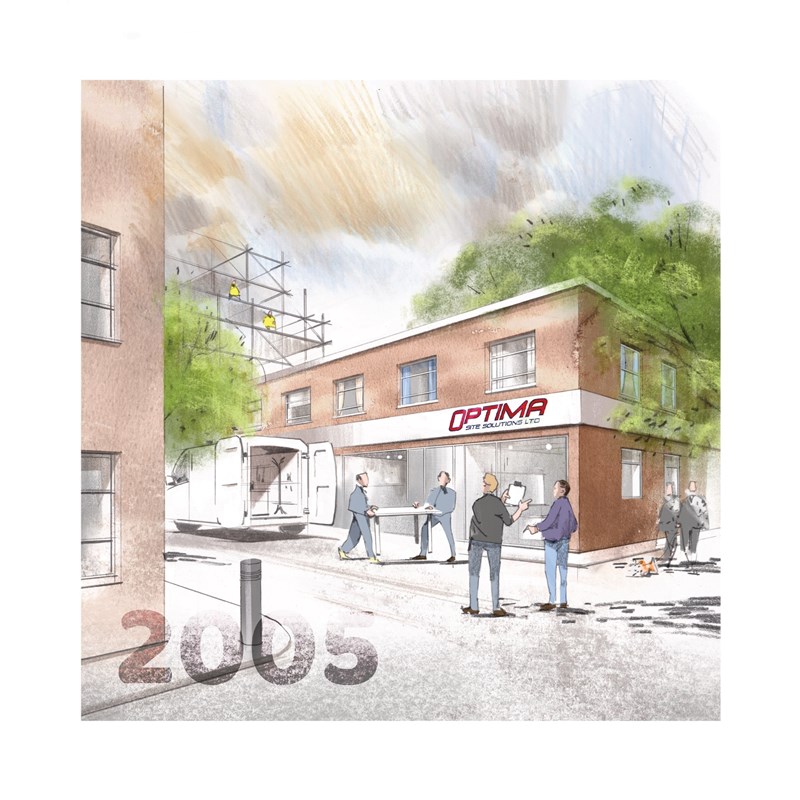
4/12
Optima moves to new premises twice the size at Hampton Hill and takes on more staff. Business acumen and good decision making is starting to carry the founders of Optima Site Solutions in the direction of growth and success.
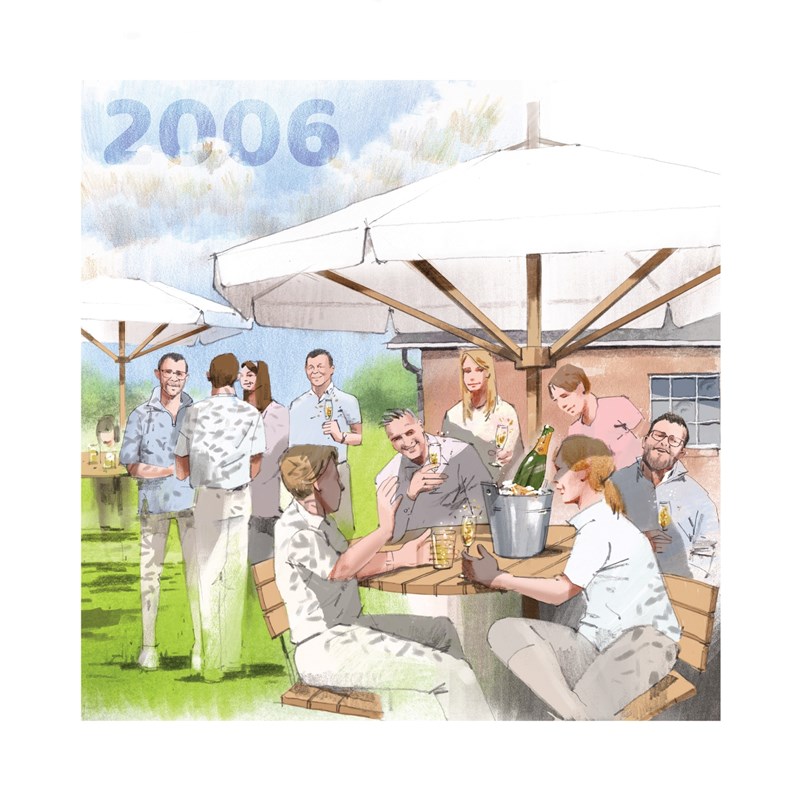
5/12
By 2007, just 5 years after the company was formed, Optima Site Solutions is an established player in delivering contracted labour into the thriving and growing construction sector in London and beyond.
Along with generating jobs internally, placing hundreds of candidates with clients and its founders becoming successful businessmen, Optima is a fun-loving work environment.
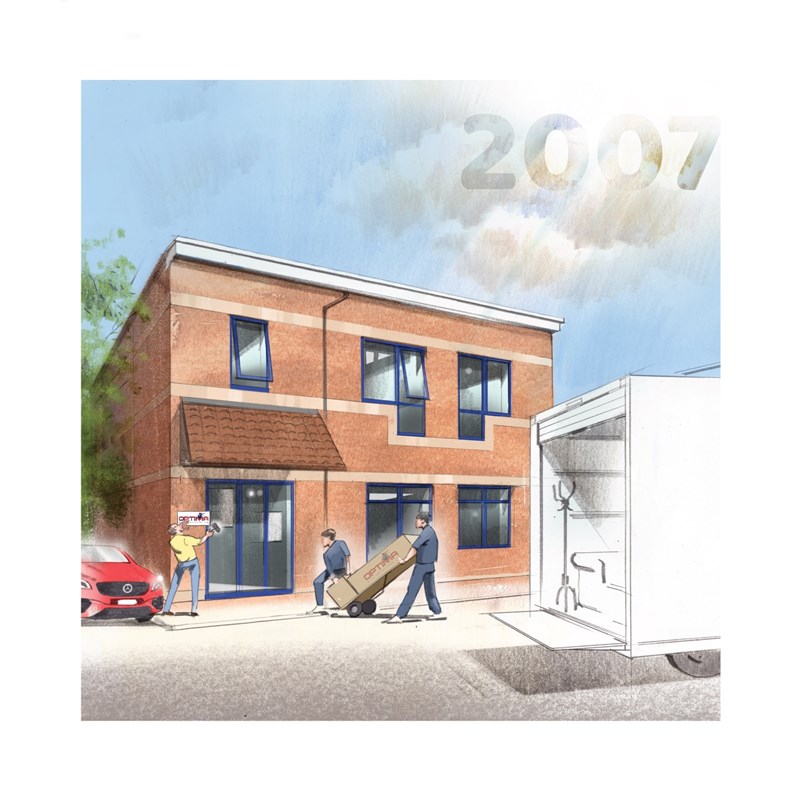
6/12
The organisation moves to premises at Kingsway Business Park in Hampton, ten times larger than its first office. 5 Kingsway remains the head office of the organisation to this day in 2022.
Optima is gearing up to expand throughout the UK and establish regional branches in different parts of the country.

7/12
The global financial crisis hits the UK economy, the construction sector and therefore Optima hard.
This is storm number one for the company which now has to hunker down and use the resilience of all of its team members to adapt and overcome to survive!

8/12
Optima has weathered the storm and in 2012, for its 10th anniversary, the company’s whole staff and significant others are treated to a luxury day out at the famous Goodwood racetrack and estate in West Sussex. All expenses paid.
Happy days!
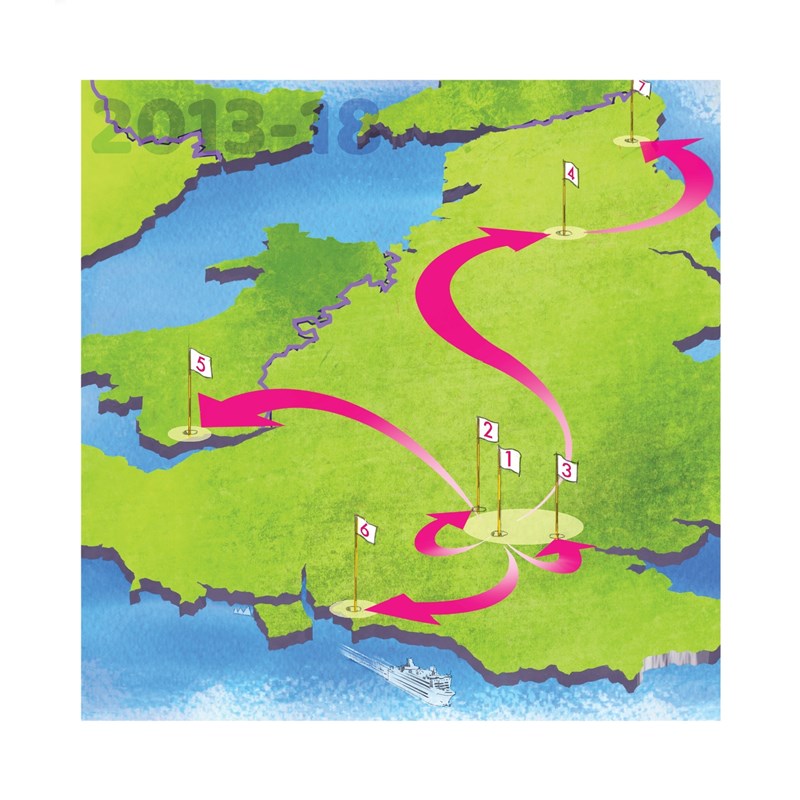
9/12
In 2013, delayed by the great recession, new Optima offices were opened in Watford, Leeds and the City of London.
Five years later, in 2018, the north of England office was moved to Newcastle.
In 2014 a temporary Wales branch was opened on the outskirts of Cardiff.
In 2017 the Chichester office was established.

10/12
At the start of 2020, the coronavirus COVID-19 reached the UK and became the second global event to significantly alter the course of history for Optima.
This second storm brought with it nationwide lockdowns, furlough, the Government job retention scheme and working from home.
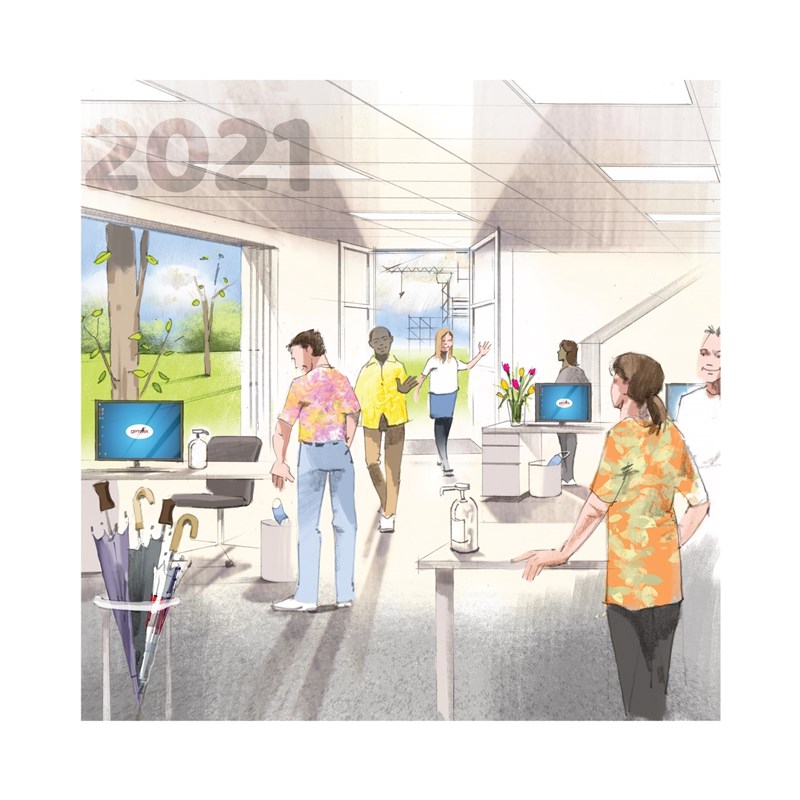
11/12
In early 2021, Optima comes back to life after its second major shake-up. With time, its four offices in Hampton, Chichester, Newcastle and the City of London get back to the normal hustle-bustle of having all staff in the building, working together.
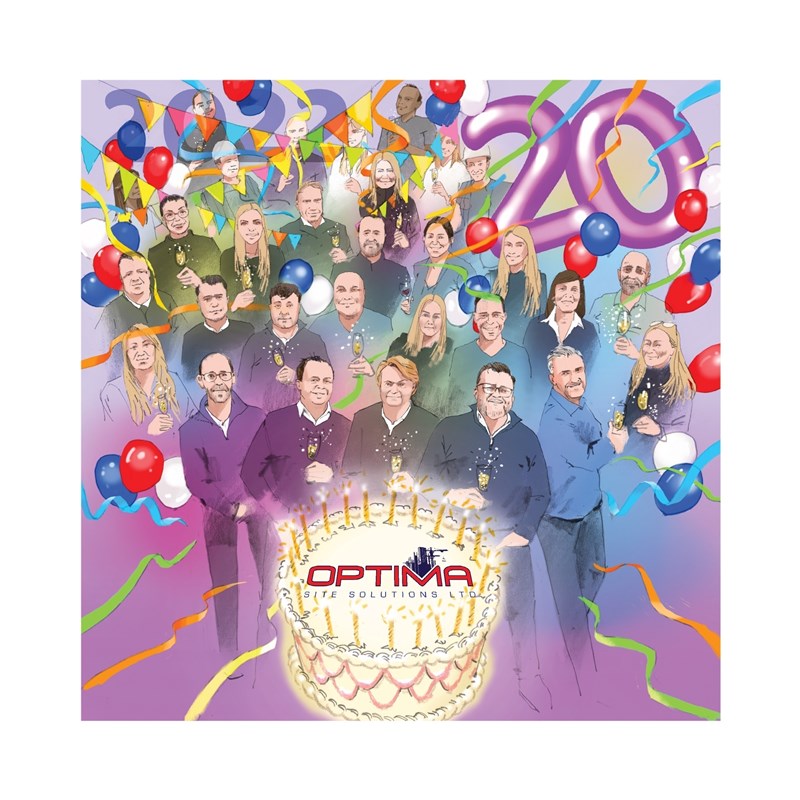
12/12
In 2022, Optima Site Solutions marks and celebrates 20 years of growth and success!
Stronger than ever and ready for anything; the firm is looking forward to the next twenty years of serving labour to the UK construction industry.
Doug Gordon is a London artist with 30+ years of professional experience.
Language is a fascinating aspect of human culture. Words often carry historical significance and nuanced meanings. One such word is 'optima.' Let's delve into the definition, etymology, and context of the word 'optima,' exploring its rich background and the various ways it is used today.
The word 'Optima' is a noun derived from the Latin word "optimus," meaning "best" or "the most excellent." It represents the plural form of the word, emphasizing the superlative qualities or choices within a particular context. 'Optima' embodies the idea of attaining the highest level of quality or performance.
Being such an old word, there a number of definitions for what the word now means in English. These include:
‘The most favourable situation or level for growth or success.’
‘The plural form of the Latin adjective "optimus," meaning "best" or "the most excellent".’
‘A collection of the highest quality or most exceptional choices or options within a specific context.’
What we do at Optima Site Solutions is multi-faceted. Having focused in on our eight main sectors in 2022, we have defined our main construction industry sectors as separate markets.
Optima Site Solutions’ eight key sectors are as follows:
• Recruitment services in Construction
• Recruitment services in Scaffolding
• Recruitment services in Shopfitting and Interiors
• Recruitment services in Mechanical and Electrical
• Recruitment services in Cranes, Heavy Lifting and Plant
• Recruitment services in Civil Engineering
• Recruitment services in Facilities Management
• Recruitment services in Professional and Technical
More recently, as of 2023, Optima Site Solutions has expanded its service offering in the construction industry beyond its bread-and-butter activity of placing operatives on to temporary contracts and into recruiting candidates into permanent positions in the industry. Working on finding optimal candidates for our clients’ permanent job vacancies covers, but is by no means limited to, these job titles: Site Manager, Contract(s) Manager, Project Manager, Quantity Surveyor and Estimator.
The etymology of 'Optima' traces back to ancient Rome, where Latin served as the dominant language. The adjective 'optimus' was commonly used to denote the highest degree of excellence or superiority. Over time, the plural form 'Optima' emerged, signifying a collection of the best or most exceptional entities.
The Latin language is more than 2,500 years old; dated at around 700 BC in historical records. The language was created by Roman people, specifically those who lived at Palatine Hill in Italy.
Over time, the plural form 'Optima' emerged, signifying a collection of the best or most exceptional entities. It is the feminine plural form of the word, indicating a group of things or entities that are considered the best or most outstanding within a particular context.
It’s safe to assume that the word Optima is from 100 BC at the latest and therefore the word ‘optima’ has been around for more than 2,000 years.
As a word which sounds good to say and has historic meanings of being the best, 'Optima' is a word which is used as a brand name for more than 100 companies. However, the word hasn’t been used in day-to-day conversation for over 100 years and is rarely used in written English outside of scientific writing.
Many industries including healthcare to legal and beyond have a big brand name called 'Optima'. In fact, there are at least two other recruitment companies other than ours in the UK using this brand name.
The word 'Optima' carries a profound meaning derived from its Latin roots, representing the best or most excellent aspects within a given context. From automotive design to mathematics to philosophy, ‘optima’ finds application in diverse fields, representing the pursuit of excellence, optimisation, and the highest ideals. Understanding the definition, etymology, and contextual usage of 'optima' allows us to appreciate the multifaceted nature of language and the intricate layers of meaning embedded within words.
When it comes to construction recruitment services, there is only one Optima; and that is us!
Optima Site Solutions Ltd (est. 2002, UK company number 04236274).